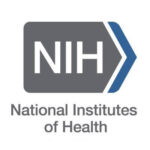CSDE Trainee Spotlight: Rothschild’s NIH F31 Research Results Published in Contraception
|
Claire Rothschild is a CSDE Trainee and doctoral candidate in UW’s Department of Epidemiology, as well as a recipient of an NICHD Population Dynamics Branch predoctoral F31 fellowship. Results from her dissertation research were recently published in an article in Contraception. The primary concern of Rothschild’s research study is to better understand the circumstances associated with contraceptive discontinuation, especially among women who do not desire to be pregnant. Analyzing data about women who do not wish to become pregnant from the Mobile Data Collection for Contraceptive Use, Behaviors and Experience (mCUBE) study (CSDE Affiliate Alison Drake is PI of the larger study), Rothschild and co-authors estimate that the contraceptive discontinuation rate was 36.9 per 100 woman-years, and that discontinuation was 3.8-fold higher among high- vs. low-risk women. The study concludes that the high rates of early discontinuation emphasize the necessity of investing in efforts to develop new contraceptive technologies and stronger delivery systems to better align with women's needs and preferences for voluntary family planning. Prior to starting her doctoral training, Claire worked in global health program implementation and evaluation with the Population Council in Kenya, Partners In Health in Rwanda, Stanford University’s Center for Health Policy and Jacaranda Health, a Kenya-based maternal healthcare organization. (read more)
|
 |
CSDE Director Sara Curran Discusses Census Count
|
UW News spoke with CSDE Director Sara Curran about the controversy surrounding the 2020 census, and what may come next. Curran explains that the shortened time between the end of the count, and the Dec. 31 deadline of delivering the count to the president, shortchanges data reconciliation processes that ensure an accurate count. These data reconciliation processes were statutorily set for four months after the close of enumeration, but now are being given only two and a half months. Curran also talked about the census at two events this fall: the UW Libraries’ Constitution Read Aloud event, and as part of the UW Graduate School’s Public Lecture Series, Coexisting with COVID-19. (read more)
|
 |
*New* NIH Announces Funding Opportunities Around Health Disparities and Diversity
|
Three new NIH funding announcements were published last week related to addressing health disparities among immigrant populations. In the first, NIH is seeking applications that examine the etiology of health disparities and health advantages among immigrant populations. In the second, NIH is seeking applications that address health disparities among immigrant through effective interventions. In the third, NIH is seeking applications for research supplements to promote diversity in health-related research. (read more)
|
 |
*New* Request for Proposals: Russell Sage Foundation
Applications are open for the Russell Sage Foundation’s Behavioral Economics; Decision Making & Human Behavior in Context; Future of Work; Social, Political and Economic Inequality Grants. In addition, RSF will also accept LOIs relevant to any of its core programs that address at least one of the following issues: Research on the Covid-19 pandemic and the resulting recession in the U.S, research focused on systemic racial inequality and/or the recent mass protests in the U.S. The deadline is 03/10/2021 for the LOI. CSDE is always happy to help you in the preparation of your applications - whether that is with scientific consultations or pre-award proposal support, which includes budget preparation, all ancillary materials, management of submission, and experienced reviewers for providing feedback on your narrative. Contact Scott Kelly, Sara Curran, Steve Goodreau, or Belinda Sachs with any questions. (read more)
*New* Community Data Platforms Matching Grants
Community Data Platforms has matching grants available to help community leaders across the U.S. get the data insights they need to make their communities more equitable and inclusive. CDP believes in data for good and has grant funding to help support equity & inclusion. Learn More about CDP’s 2020 Grants.(read more)
*Don’t Miss* CSDE’s Fall 2020 Lightning Talks and Poster Session!
|
Mark your calendars for December 11th, 2020 at 12:30 PM for CSDE’s Fall 2020 Lightning Talks and Poster Session. Seven graduate students from the Evans School of Public Policy and Governance, Anthropology, Political Science, College of Built Environments and Sociology are eager to present their research in two-minute lightning talks and discuss their work with you during poster presentations. The session will take place on Zoom. You are sure to learn something new from the these very interesting presentations, which will cover a wide range of key topics in population science.
Come mingle with colleagues, meet the next generation of population scientists, vote on the best poster, and support CSDE's trainees! (read more)
|
 |
CSDE Affiliates Plan NOW for an NIH Population Dynamics Branch Research Application!
Calling all UW demographers, population scientists, and population health scientists. CSDE strongly encourages you to consider preparing applications (larger ones (R01) or smaller ones (R21/R03) or career awards (K’s) or conference grants (R13s) or small training workshops (R25)) to the Population Dynamics Branch! The Population Dynamics Branch has a broad social science mandate that includes research, data collection, and research training in demography, reproductive health, and population health. Any research captured by CSDE’s Primary Research Areas is eligible, including: Population and Environment, Migrations and Settlements, Health of People and Populations, Demographic Methods and Measurements, Wellbeing of Families and Households. Upcoming due dates are the standard ones for NIH, which are primarily in early to mid February. The scientific review panels for PDB are comprised of social scientists, demographers, and reproductive health scientists. There are typically two panels where your research proposal will be sent, including SSPA and SSPB. Contact CSDE for more details about your applications. We’re happy to support your applications, including offering mock reviews! (read more)
|

